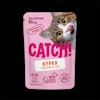
On February 10, Product of the Year US announced the winners of the 2020 Product of the Year Awards. The awards, which are voted on by consumers and focus on product innovation, included winners in the Cat Care (Comfort Zone Calming Diffuser by Central Garden & Pet), Dog Care (Rachael Ray’s Nutrish Smoochies by the J.M. Smucker Company) and Pet Cleaning (Resolve Urine Destroyer by RB) categories, but more notable to me were two categories covering product types not seen on past Product of the Year awards lists: CBD Sleep Aid and CBD Topical.
CBD continues to grow in the human and pet product spaces
According to a January 2020 Headset Inc. and Nielsen pet industry paper entitled “Pet & CBD Report,” legalized cannabis sales are expected to exceed US$41 billion by 2025. What’s more, CBD pet products will represent 3–5% of all hemp-CBD sales with one of the highest conversion rates in the CBD industry.
According to the report, 74% of CBD buyers have pets, and 24% of pet owners use hemp-CBD either for themselves or their pets, or both. Nearly 26% of U.S. adults with dogs are using hemp-CBD products, and half of those use said products on their pet.
Tinctures and treats are the top forms of pet-related CBD products, which is no surprise as tinctures are a very popular form of human CBD intake, as well — in fact, the winning Product of the Year CBD Sleep Aid is a tincture called CBD PM (by cbdMD), containing CBD and melatonin as well as various herbs to promote calming.
Pet industry taking advantage of trend
In spite of continued complexities surrounding the legality of CBD in pet products, the segment continues to boom, and I expect I’ll be seeing plenty of new and expanded product lines on display at the upcoming Global Pet Expo being held in Orlando, Florida, USA at the end of this month. As use in the human space continues to grow we can expect the pet space to follow suit, as it nearly always does. The staying power of CBD products has yet to be determined, but right now consumers seem to see the benefits — for both themselves and their furry friends.
Briefly: pet CBD product price stats
There’s no denying that CBD products have serious dollar signs attached to them in the pet space. According to the Headset Inc./Nielsen report:
- The average median price of dog tinctures is US$62.94; the same for treats is US$28.63.
- The average median price of cat tinctures is US$33.98; the same for treats is US$20.38.
- The average median price of powders, another popular form of delivery for animal CBD products, is US$77.24 for dog products and US$39.99 for cat products.



















